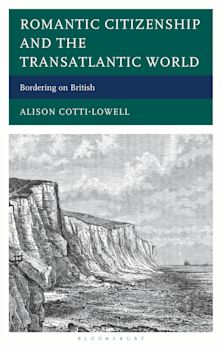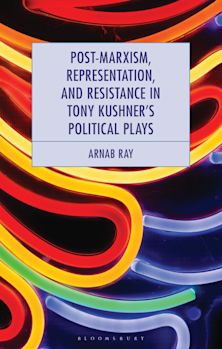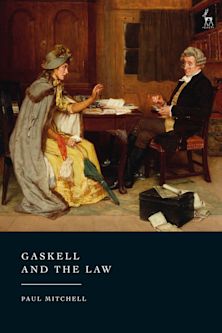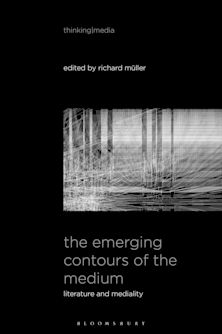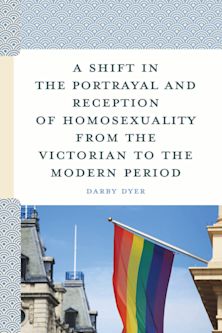- Home
- ACADEMIC
- Literary Studies
- Literary Studies - Other
- Lima Barreto
Lima Barreto
New Critical Perspectives
Lamonte Aidoo (Anthology Editor) , Daniel F. Silva (Anthology Editor) , Earl E. Fitz (Contributor) , Renata R. M. Wasserman (Contributor) , Nelson H. Vieira (Contributor) , Lilia Moritz Schwarcz (Contributor) , Emanuelle K. F. Oliveira (Contributor) , Paulo da-Luz-Moreira (Contributor) , Vivaldo A. Santos (Contributor) , Robert Anderson (Contributor) , Luiz Fernando Valente (Contributor) , Mário Higa (Contributor) , Marc A. Hertzman (Contributor) , Talia Gúzman-González (Contributor)
Lima Barreto
New Critical Perspectives
Lamonte Aidoo (Anthology Editor) , Daniel F. Silva (Anthology Editor) , Earl E. Fitz (Contributor) , Renata R. M. Wasserman (Contributor) , Nelson H. Vieira (Contributor) , Lilia Moritz Schwarcz (Contributor) , Emanuelle K. F. Oliveira (Contributor) , Paulo da-Luz-Moreira (Contributor) , Vivaldo A. Santos (Contributor) , Robert Anderson (Contributor) , Luiz Fernando Valente (Contributor) , Mário Higa (Contributor) , Marc A. Hertzman (Contributor) , Talia Gúzman-González (Contributor)
This product is usually dispatched within 1 week
- Delivery and returns info
-
Free CA delivery on orders $40 or over
You must sign in to add this item to your wishlist. Please sign in or create an account
Description
This edited volume is a collection of twelve interdisciplinary essays from various Brazilian literary scholars, historians, and anthropologists analyzing the work of 19th- and 20th-century Afro-Brazilian writer Afonso Henriques de Lima Barreto. This is the first collection to present a cohesive analysis of this writer’s work in English. It is an intellectually diverse collection of essays that recover Barreto’s œuvreand consider a wide range of topics, including Barreto’s treatment of race, family, class, social and gender politics of postabolition Brazil, neocolonialism, the disjuncture between urban and suburban spaces, and national identity politics.
Table of Contents
By Lamonte Aidoo and Daniel F. Silva
Chapter 1: Lima Barreto and Gender: An Inter-American Perspective
By Earl E. Fitz
Chapter 2: Race and Sex in Lima Barreto and Charles Chesnutt: a Comparative Politics Between Brazil and the United States
By Renata R. M. Wasserman
Chapter 3: The ‘Coloniality of Power’ and the Fictional Biography of an Obscure Bureaucrat in Lima Barreto’s Vida e Morte de M. J. Gonzaga de Sá
By Nelson H. Vieira
Chapter 4: Lima Barreto and the Mimetic Experience: Agency, Literature, and Madness in the Brazil of the First Republic
By Lilia Moritz Schwarcz
Chapter 5: A Pan-African Activist at the Turn of the 20th Century: Lima Barreto and the Denunciation of Racial Prejudice in Brazil and the United States
By Emanuelle K. F. Oliveira
Chapter 6: Climbing the Social Ladder as a Tragic Farce in Brazil at the Turn of the Century in Machado de Assis’ “The Nurse,” Lima Barreto’s “The Man Who Spoke Javanese,” and Monteiro Lobato’s “The Funnyman Who Repented”
By Paulo da-Luz-Moreira
Chapter 7: Extraordinary Delusions: the Madness of Capital in Lima Barreto’s writings
By Vivaldo A. Santos
Chapter 8: “Fatally Condemned to Wander”: Lima Barreto’s Nonfiction Journalism and Testimonials
By Robert Anderson
Chapter 9: From Synthesis to Difference: Lima Barreto’s Parodic Ufanismo
By Luiz Fernando Valente
Chapter 10: Reading Lima Barreto against Lima Barreto
By Mário Higa
Chapter 11: Freyreans, Marxists, and the “Labyrinth of Nations”: Lima Barreto and His Critics
By Marc A. Hertzman
Chapter 12: Men in their Own Wor(l)ds: Lima Barreto and the Narration of Masculinity
By Talia Gúzman-González
Product details
| Published | Nov 14 2013 |
|---|---|
| Format | Hardback |
| Edition | 1st |
| Extent | 248 |
| ISBN | 9780739176122 |
| Imprint | Lexington Books |
| Illustrations | 3 BW Photos |
| Dimensions | 237 x 157 mm |
| Publisher | Bloomsbury Publishing |
About the contributors
Reviews
-
Comprising 12 essays on Brazilian writer Afonso Henriques de Lima Barreto (1881-1921), this volume opens with an introduction by Aidoo and Silva. In a translated essay on agency, literature, and madness, social anthropologist Lilia Moritz Schwarcz sets the parameters for understanding Lima Barreto's role as both leading author of his day and marginalized, bitter critic of poverty, race, social hierarchy, and politics. Other essays place Lima Barreto, who was troubled by alcoholism and mental illness, in a pan-American context through comparisons with North American literature (essays by Earl Fitz and Renata Wasserman); foreground him as a spokesman against endo-colonialist structures (Nelson Vieira, Vivaldo Santos, Emanuelle K. F. Oliveira); and question his dual position as educated critic and victim of racism (Marc Hertzman, Mário Higa). Luiz Fernando Valente studies Lima Barreto's famous parody of patriotism, and Paulo da-Luz-Moreira considers his humor in the story 'The Man Who Spoke Javanese' against farces by Machado de Assis and Monteiro Lobato. . . .Summing Up: Recommended.
Choice Reviews
-
Lima Barreto's fiction, journalism, and diaries, as well as his personal and professional trajectories, remain a powerful challenge to most canonical interpretations of Brazilian race relations and national identity. This collection of critical essays achieves the important task of gathering a number of respected scholars from different regions and disciplines to offer a variety of highly innovative readings of his works, as well as rigorous analyses of life in early 20th-century Brazil. It offers an invaluable contribution to the fields of comparative literature, hemispheric studies, African diaspora, gender and race studies, and Decolonial thinking. It will certainly become an essential resource for both the specialist and those looking for an informed introduction to Brazilian culture.
Cesar Braga-Pinto, associate professor, Brazilian studies, Northwestern University
-
Bringing together original and intelligent essays across several disciplines, this well-timed anthology is the first book-length English publication to pay homage to one of the major Afro-Brazilian intellectuals of all time: Afonso Henriques de Lima Barreto (1881-1922). As both a victim and an outspoken critic of elite Brazilians’ racist backlash in the immediate aftermath of the Abolition of Slavery (1888), Lima Barreto, as demonstrated in these essays, left behind in his relatively short life a remarkable body of testimonies about the contradictions inherent in Brazil’s official entrance into modernity. Above all, the essays in this collection ably address the ideological contradictions and cross-social/racial tensions in a society struggling to reconcile modernity with the cultural legacy of slavery and colonialism. As argued by the organizers of this important anthology, Lima Barreto’s fierce opposition to the conciliatory ideologies of miscegenation and related cross-racial brotherhood still reverberates through the discourse and activism of contemporary Afro-Brazilians, and confirms the relevance of studying his work today.
Sonia Roncador, associate professor, Brazilian literature and culture, The University of Texas at Austin












